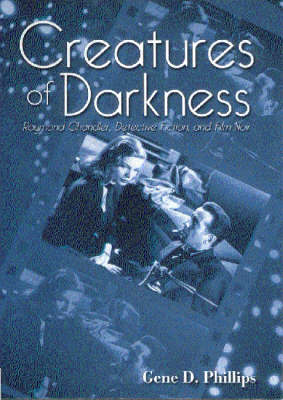More than any other writer, Raymond Chandler (1888-1959) is responsible for raising detective stories from the level of pulp fiction to that of literature. Philip Marlowe - his cynical, hard-boiled private eye - set the standard for rough, brooding heroes with a strong sense of honour despite living in an unfair world. Like Ian Fleming's James Bond, Marlowe has lived beyond his creator's works, appearing in radio and television shows and in numerous film adaptations. Chandler's seven novels, including "The Big Sleep" (1939) and "The Long Goodbye" (1953), with their pessimistic view of life and stark, grim realism, had a direct influence upon the emergence of film noir. In addition to the novels, Chandler wrote short stories and penned the screenplays for several films, including "Double Indemnity" (1944) and "Strangers on a Train" (1951). This is a biocritical study of the works of Raymond Chandler.
It explores Chandler's unpublished script for "Lady in the Lake", examines the differences in the American and British releases of "Stranders on A Train", discusses the merits of the unproduced screenplay for "Playback" and compares Howard Hawks's directors cut of "The Big Sleep" with the version shown in cinemas. The author offers an insight into the genius of Chandler and the power of his vision to transcend the constraints of a single art form.
- ISBN10 0813121744
- ISBN13 9780813121741
- Publish Date 7 October 2000
- Publish Status Out of Print
- Out of Print 2 October 2008
- Publish Country US
- Imprint The University Press of Kentucky
- Format Hardcover
- Pages 352
- Language English
